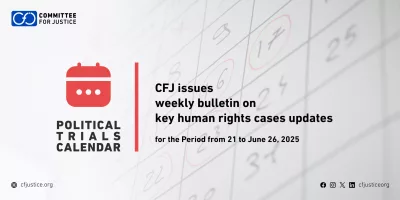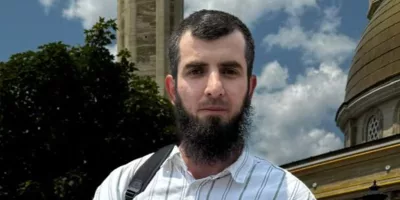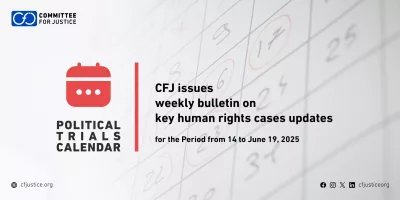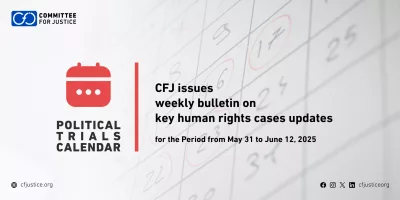On 4/6/2014, clashes took place between demonstrators and security forces in front of the Toshka Gate outside the Mansoura University campus, where the defendants were arrested randomly by police forces.
On 5/6/2014, the Public Prosecution in Mansoura began investigations into Case No. 10753/2014 Misdemeanor/Mansoura, registered under No. 2037/ 2014, Appeals/Mansoura. The case was referred to the Ismailia Military Prosecution for specialization in accordance with the law on the Protection of Public and Vital State Facilities No. 136/2014, on 31 December, 2014, and the Military Prosecution did not re-interrogate any of the defendants as it considered the prosecution’s investigations enough. It resorted to renewals until referral to trial.
Then Colonel Mahmoud Ibrahim Ghazi, head of the Total Military Prosecution in Ismailia, issued a referral order for eight defendants, 7 of them on charges of demonstrating without notice, gathering, using force, and calling for the disruption of the provisions of the constitution, shouting slogans with the intention of provoking sedition, possessing banners intended for distribution, and blocking the road, the possession of fiery materials that are used in explosives, and the possession of tools (iron pieces) that are used in assaulting people. The eighth and last defendant was charged with organizing a gathering, ordering the defendants to riot, and providing them with the necessary assistance.
On 2 April 2015, the Fourth Circuit of the Military Criminal Court held in Mansoura issued a ruling whereby seven defendants were sentenced to seven years imprisonment with hard labour for a period of five years, the eighth and last defendant was sentenced to imprisonment and hard labour for a period of seven years, along with the confiscation of all the seized evidence.
Since the judgment was not accepted by any of the convicted persons, they decided to appeal it before the Military Appeals Court. The attorney for the convicted persons requested the acceptance of the appeal, suspension of the execution of the judgment until the matter of the appeal is decided, while issuing an order to release the appellants and referring them to another judicial circuit.
The basis for the appeal was as follows: Failure in causation, failure and corruption in evidence, breach of the right of defence, and error in the application of the law.
The following is a review of what took place in the investigations and the trial to analyze the violations of the right to a fair trial that occurred with the victims:
First: 7 of the defendants were subjected to torture, according to their investigation papers, and 5 of them were debated, and the investigation papers were not inferred from the debate of two of the defendants, amid requests from their defence authorities to sign a medical examination on them.
Second: The defendants were tried before a military court although they were civilians, which is a violation of the right to an impartial and independent trial, as the military judiciary is known for its political and institutional biases because it is subordinate to the Minister of Defense, rendering it far from impartial and independent.
It is noteworthy that this case file and other relevant issues can be accessed through membership of the “CFJ Sharing Platform”, through this link…
For more information about the platform and its services, please contact Shaimaa Aboelkhir: @saboelkhir cfjustice.org, or Ahmed Mefreh: amefreh@cfjustice.org






